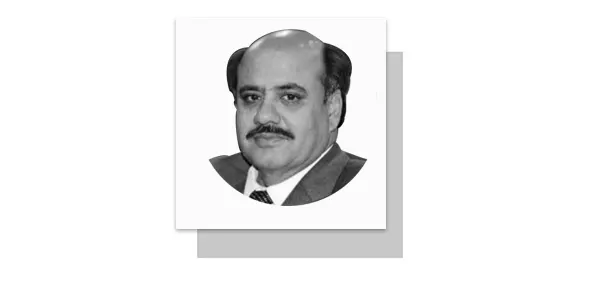THE recent BRICS summit unveils the organization’s strategic expansion to solidify its position as a prominent global player. President Putin and Xi reiterated their global worldviews, sounded to defy the United States’ containment policies and demanded a just solution to the Israel-Palestinian dispute. However, the other members signaled a balancing approach towards the international developments to continue their politico-economic engagements with the United States. Nevertheless, the participants voiced their desire to reduce dependence on the U.S. Dollar by introducing an alternative global payment platform for trade transactions.
The intergovernmental organization founded by Brazil, Russia, India, China, and South Africa (BRICS) has gradually evolved as a prominent economic bloc to balance the U.S.-led global geoeconomic system. BRICS aims ‘to foster communication and collaboration among its members, advance the shared interests of emerging market economies and developing nations, and create a harmonious global community characterized by enduring peace and shared prosperity.’ The members decided to expand the organization by admitting new members during its Johannesburg summit in August 2023.This transition to BRICS Plus, with the admission of four new members—Egypt, Ethiopia, Iran, and the United Arab Emirates—on January 1, 2024, holds great potential for the future of the organization. Currently, BRICS is attractive for emerging economies due to the dominant powers’ aggressive weaponization of the financial system. The increasing aspiration to join BRICS has established its multilateral character and systematic growth. According to estimates, BRICS Plus now represents 45.6% of the world population, 37.3 % of the world GDP, 44.6% of crude oil production, and morethan27.4% of the world economy. The members launched the New Development Bank, initially called the BRICS Bank.
Russia hosted the 2024 BRICS annual summit in Kazan from October 22 to 24, 2024.The summit’s theme, ‘Strengthening Multilateralism for Just Global Development and Security,’ underscores the leaders’ commitment to these crucial goals. The leaders pledged to expand BRICS under ‘the three pillars of political and security, economic and financial, cultural and people-to-people cooperation and to enhancing our strategic partnership for the benefit of our people through the promotion of peace, a more representative, fairer international order, a reinvigorated and reformed multilateral system, sustainable development and inclusive growth.’ They proclaimed to reform the U.S. dollar-based global monetary system, further reinforcing their commitment to just global development and security.
Although the leaders reiterated the need to reform the current international financial architecture, they needed to take a practical initiative. It seems more rhetoric than practice. Many members of the BRICS Plus are unprepared to exit from the existing financial system dominated by the United States. For instance, India and UAE desire to be part of BRICS, but they are more intertwined politically, economically, and strategically with the U.S.-led Western countries. Modi government gives the impression that it has been guarding India’s strategic autonomy by participating in BRICS-like organizations. However, it has been strengthening its threshold alliance with the United States.
The BRICS summit last week was the first annual meeting attended by the new members and many other countries. President Putin used the summit to signal to the international community that Russia is not isolated despite the U.S. and its allies’ immense efforts and economic sanctions against Russia. Similarly, China uses the BRICS forum to pursue its international geoeconomic objectives.
Kazan Declaration revealed BRICS Plus leaders’ consensual condemnation of Israel’s genocide of Palestinians. They also expressed their concerns about the escalation of the Gaza war in the Middle East. Article 30 of the declaration states, “We reaffirm our support for the State of Palestine’s full membership in the United Nations in the context of the unwavering commitment to the vision of the two-state solution based on international law including relevant UNSC and UNGA resolutions and the Arab Peace Initiative that includes the establishment of a sovereign, independent and viable State of Palestine in line with internationally recognized borders of June 1967 with East Jerusalem as its capital living side by side in peace and security with Israel.”
BRICS acceptability in the Global South has been increasing. Therefore, Islamabad formally applied to join the BRICS grouping in August 2023. Pakistan’s credentials for the BRICS candidature are strong. Russian Deputy Prime Minister Alexei Overchuk, during his visit to Pakistan in September 2023, promised Russia’s support for Pakistan’s membership in the BRICS bloc. However, India, a founding member of the BRICS, succeeded in obstructing Pakistan’s membership. It is because a new member is admitted to BRICS only by consensus. Thus, India used its veto to thwart Pakistan from joining the BRICS bloc. To conclude, BRICS has emerged as a meaningful grouping. The rivalry between India and Pakistan impedes the latter’s entry into the organization. Thus, Islamabad focuses on other multilateral forums for its politico-economic pursuits.
—The writer is Prof at the School of Politics and IR, Quaid-i-Azam University.
(jaspal_99@hotmail.com)







